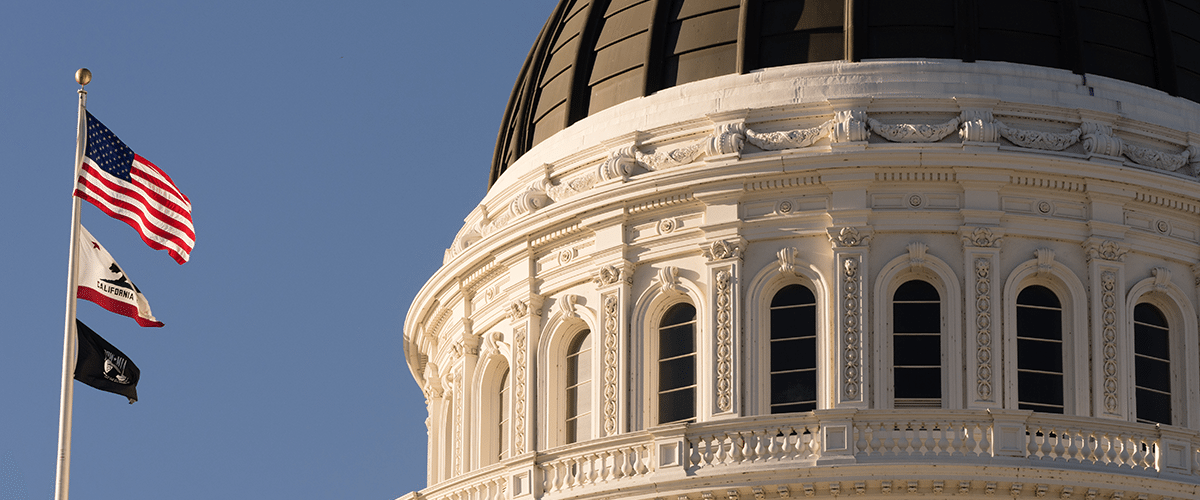[vc_row][vc_column][vc_column_text]
Gov. Jerry Brown’s administration released documents outlining proposed changes to the state’s upcoming marijuana regulatory system to reconcile differences with its medical marijuana law.
With California preparing to launch its estimated $6.46 billion recreational cannabis market next year, Gov. Jerry Brown has issued a series of overhaul proposals for its regulatory system. The documents outline changes that are intended to reconcile the conflicting differences of the state’s new recreational law and its already-operational medical marijuana program.
California was the first state to legalize medical marijuana in 1996 and last November its voters approved a measure to legalize recreational cannabis for adults. However, the two laws, as they stand now, have conflicting regulatory frameworks. State officials must have the adult use rules and regulations crafted by the time the law takes effect in January. Having one regulatory framework, Brown’s administration stresses, is essential to avoid confusing businesses and duplicating costs.
“While many components of the regulatory structure are proposed to be harmonized, the administration proposes to preserve the integrity and separation of the medicinal and adult use industry by maintaining these as two separate categories of license types with the same regulatory requirements for each,” the proposal reads.
Those in the cannabis industry have already lauded several of the changes proposed. They’re expected to cut through unnecessary regulatory red tape and improve bottom lines. Some of these pro-business changes include:
- Allowing a single company to obtain an unlimited number of cannabis business licenses, with the exception of testing labs. Right now the rules stipulate that companies possess a maximum of two.
- Repealing a mandate that requires marijuana companies to obtain a local permit on top of a state license, unless its city or county has established its own licensing system.
- Removing the provision that growers, manufacturers and retailers distribute their products through third-party companies. They would be allowed to transport and deliver goods on their own.
- Eliminating state-issued medical marijuana cards for ones that are county-issued.
- Creation of a Marijuana Control Appeals Panel to oversee license disputes and enforcement actions.
“I didn’t get any sleep last night because I was thinking about all the different opportunities that stem from this,” Avis Bulbulyan, CEO of cannabis consultancy Siva Enterprises, told Marijuana Business Daily. “It is absolutely pro-business. It is huge. It is a big step in the right direction.”[/vc_column_text][/vc_column][/vc_row][vc_row][vc_column][vc_single_image image=”17394″ img_size=”1200×250″ onclick=”custom_link” img_link_target=”_blank” link=”https://www.medicalmarijuanainc.com/report-u-s-legal-cannabis-market-growing-faster-dot-com-boom/”][/vc_column][/vc_row][vc_row][vc_column][vc_column_text]Among the proposed changes is one, however, that California cannabis companies are posing to contest: Brown wants to ban adult use licenses and medical licenses from operating at same location. This means marijuana companies would be forced to choose either medical or adult use cannabis for their business model.
“If we have anything to do with it, yes. I’m saying the industry is going to rally to have that removed,” said Kenny Morrison, president of the California Cannabis Manufacturers Association. Morrison has said he believes the proposal is Brown’s attempt to protect cannabis companies from interference from the Trump administration.
The proposed changes, which must be approved by the Legislature, would be a strong step forward for California as it makes its way to becoming the nation’s largest marijuana economy.
Keep up with the burgeoning legal cannabis industry by regularly visiting our news feed.[/vc_column_text][/vc_column][/vc_row]






